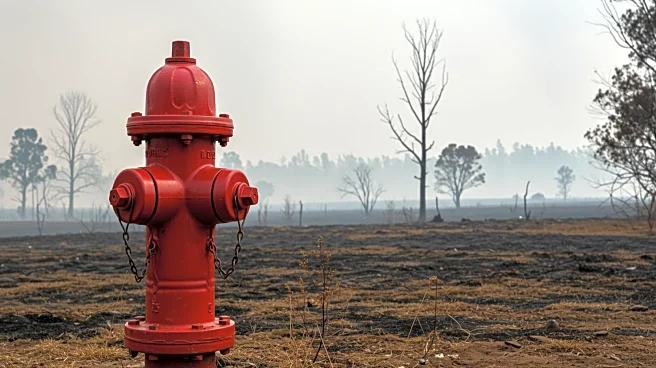What's Happening?
Spain is grappling with widespread wildfires, exacerbated by climate change and poor land management. The fires have affected regions across the country, including Catalonia and Castilla y León, causing significant damage and loss. Experts emphasize the need for a fundamental rethink of land use and management to prevent future disasters. Initiatives like the Ramats de Foc scheme, which uses grazing animals to reduce fire risk, are being implemented to mitigate the impact of fires.
Why It's Important?
The wildfires in Spain underscore the urgent need for climate change adaptation strategies. As temperatures rise and rural depopulation leaves land untended, the risk of fires increases. This situation highlights the vulnerability of regions to climate change and the necessity for proactive measures. The fires have economic implications, affecting agriculture and tourism, and pose challenges for emergency services. Addressing these issues is crucial for sustainable development and environmental preservation.
What's Next?
Spain's government and environmental experts are advocating for improved land management and fire prevention strategies. The Ramats de Foc initiative is expanding, with plans for similar schemes in other regions. Policymakers are urged to prioritize climate adaptation measures and invest in resources to combat the increasing threat of wildfires. Long-term solutions require collaboration between government, communities, and experts to ensure effective land use and management.
Beyond the Headlines
The wildfires reveal deeper societal issues, including rural depopulation and inadequate land management. These factors contribute to the severity of fires and highlight the need for comprehensive policy changes. The situation calls for a cultural shift towards valuing traditional agriculture and sustainable practices. Addressing these challenges is essential for building resilience against climate change and ensuring the safety and well-being of affected communities.











